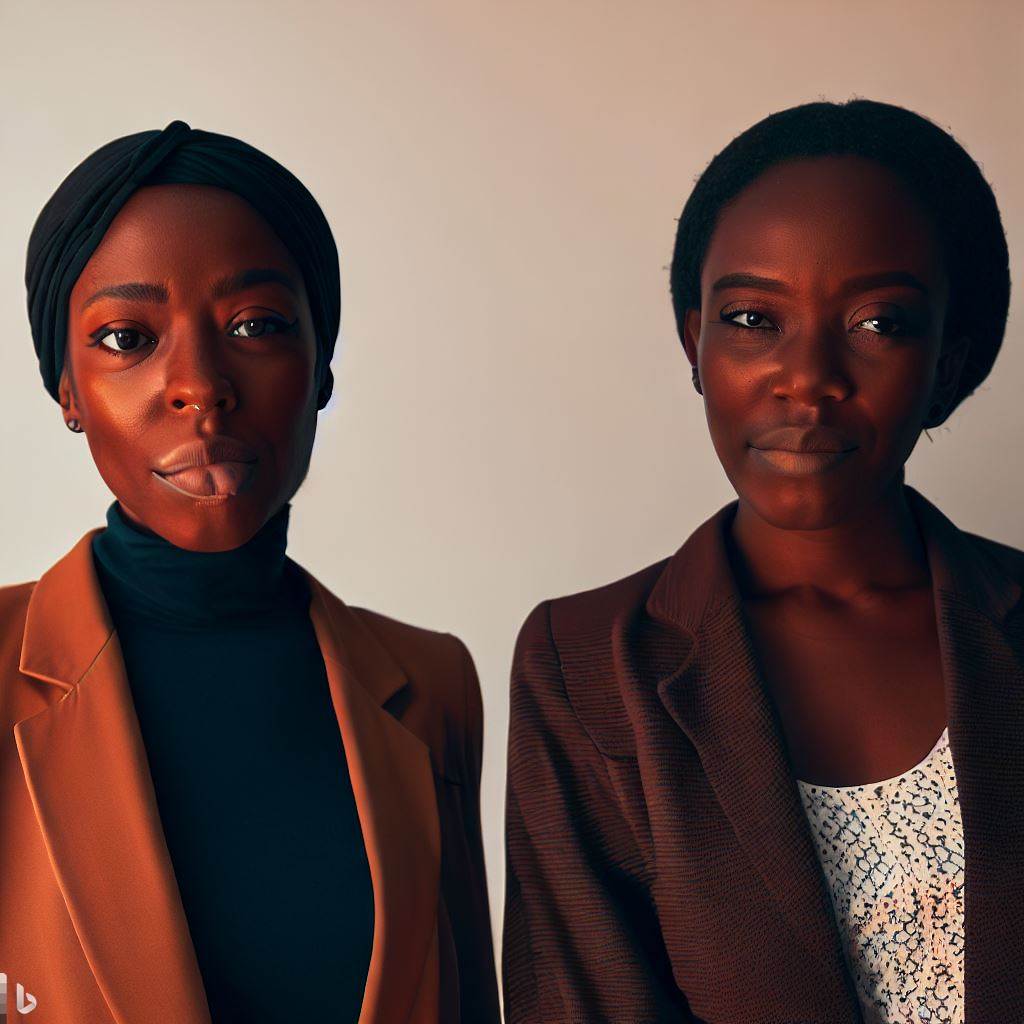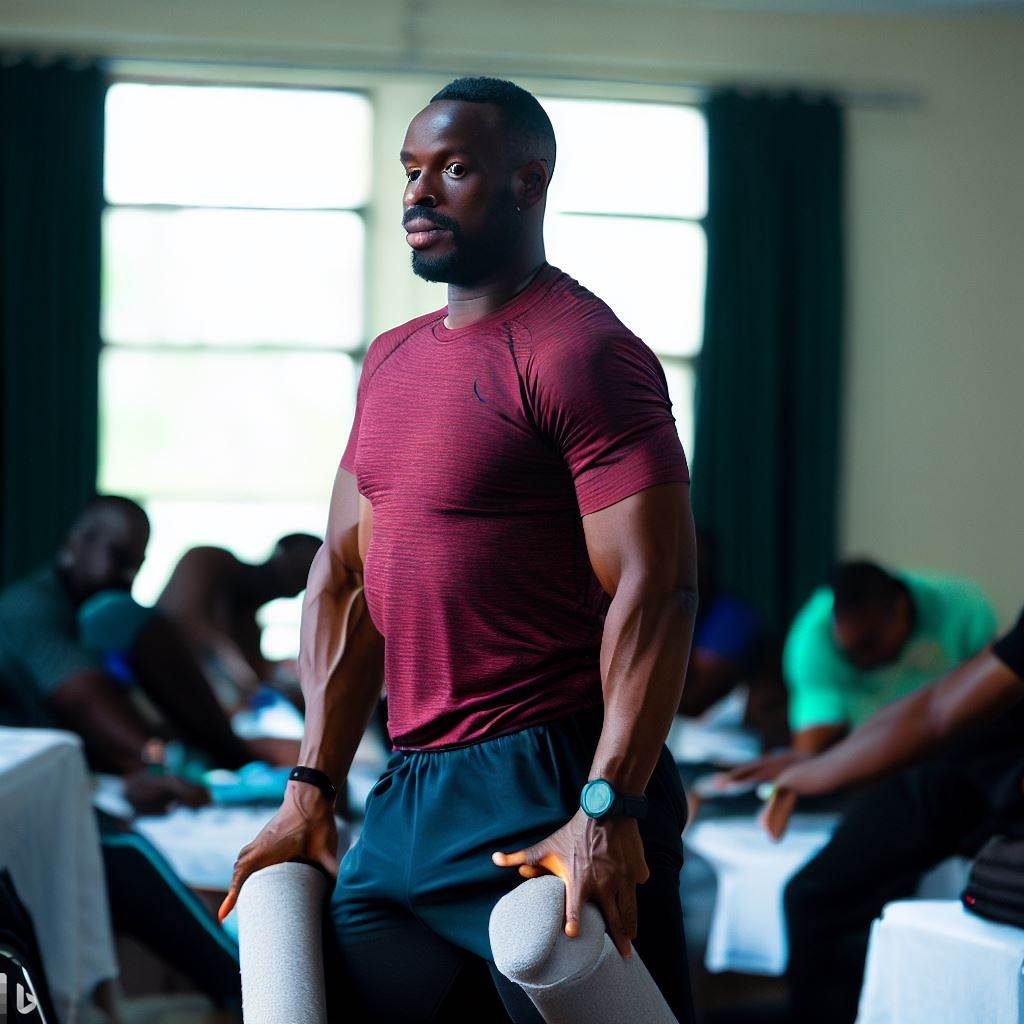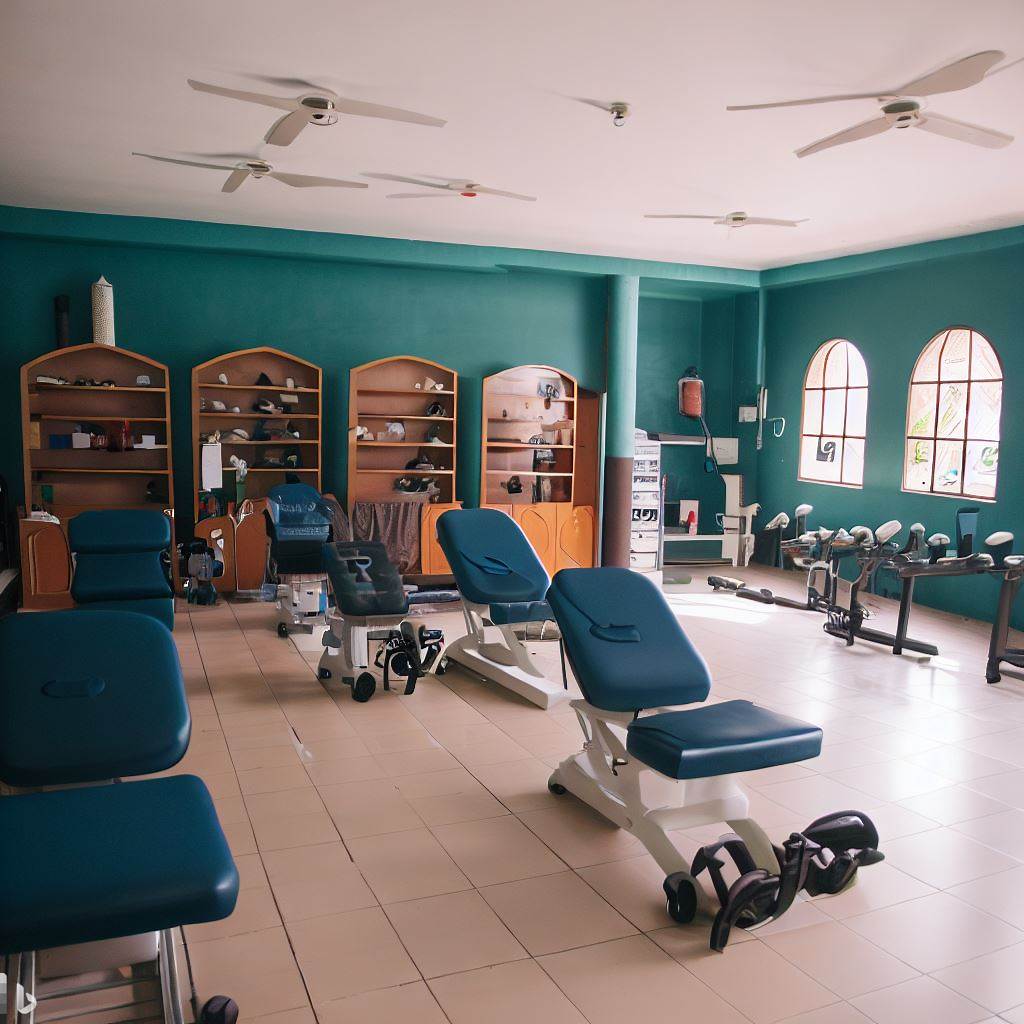Introduction
- Women in Political Science: A Nigerian Perspective explores the role and challenges faced by women in the field.
- It is important to discuss this perspective to gain a deeper understanding of gender dynamics in Nigerian politics.
In Nigeria, women in political science face unique challenges but hold immense potential for transformation.
It’s crucial to discuss this perspective to:
- Highlight gender disparities in political science.
- Empower women’s participation in politics.
- Showcase inspiring success stories.
- Promote gender equality and diversity.
- Encourage future female political scientists.
Historical Context
Highlight the historical role of women in Nigerian politics
- Women in Nigeria have played a significant role in politics throughout history.
- In pre-colonial times, women had leadership roles within their communities and participated in decision-making processes.
- In short, with the arrival of colonialism, women’s involvement in politics was limited, and they faced marginalization.
- It was not until Nigeria gained independence in 1960 that women began to actively participate in politics again.
- Women started organizing themselves into groups and associations to advocate for their rights and interests.
- The National Council of Women’s Societies (NCWS) was formed in 1953 to promote women’s political participation.
- Despite facing cultural and societal barriers, women made notable progress in Nigerian politics over the years.
Discuss any significant achievements or challenges faced by women in political science
- One of the significant achievements of women in Nigerian politics was the appointment of Sarah Jibril as the first female presidential candidate in 2003.
- Several women have also served as ministers and held high-ranking government positions.
- Notable women politicians like Ngozi Okonjo-Iweala and Dora Akunyili have gained international recognition for their contributions.
- Women’s representation in the Nigerian parliament has also increased over the years, although it is still relatively low.
- Despite these achievements, women in political science continue to face numerous challenges.
- Discrimination and gender biases persist, limiting women’s access to leadership positions.
- Women often encounter violence, intimidation, and harassment during political campaigns and activities.
- The patriarchal nature of Nigerian society creates additional barriers for women entering politics.
- Lack of financial resources and support networks also hinders women’s participation in the field.
- Cultural practices that prioritize men in decision-making further marginalize women’s voices.
In review, women in Nigerian politics have made significant strides in recent years.
Therefore, they continue to face challenges such as gender biases, discrimination, and limited resources. It is crucial to address these issues to ensure equal representation and opportunities for women in political science.
Read: Freelance Curating in Nigeria: Tips and Insights
Current Status of Women in Political Science in Nigeria
- A. Representation of Women in Nigerian Politics
- B. Barriers and Biases Faced by Women
- C. Notable Women in Political Science
Despite these notable women, their success remains an exception rather than the norm.
The low representation of women in Nigerian politics is a significant concern that needs urgent attention.
Efforts should be made to break down the barriers and biases that hinder women’s progress in political science.
Nigeria needs comprehensive policies to promote gender equality in political leadership.
By addressing social and cultural factors, providing mentorship opportunities, and implementing affirmative action, women’s representation can improve.
It is crucial to recognize and support the contributions of women in political science for a more inclusive and diverse democracy.
Read: The Influence of International Curators in Nigeria
Factors Contributing to Underrepresentation
Analyze cultural and social norms that limit women’s participation in politics
- Traditional gender roles imposed by society often discourage women from pursuing political careers.
- Deep-rooted cultural beliefs perceive women as less capable leaders, limiting their opportunities in politics.
- Stereotypes and biases against women in politics discourage their active participation in the field.
- Societal pressures often prioritize women’s roles as caretakers, hindering their involvement in political activities.
- Lack of support and encouragement from family and community members further deter women from entering politics.
Discuss the impact of socio-economic factors on women’s involvement
- Economic disparities limit women’s access to resources necessary to pursue political careers.
- Financial constraints often prevent women from running election campaigns effectively.
- Limited educational opportunities hinder women’s understanding of political processes and policies.
- Unequal distribution of wealth and resources gives men a higher advantage in political competition.
- Lack of representation of women in positions of power leads to policies and decisions that do not prioritize their needs.
Examine the role of political parties and institutional structures
- Gender biases within political parties result in fewer opportunities and support for women.
- Lack of transparent selection processes in political parties hampers women’s chances of becoming candidates.
- Male-dominated networks and old boys’ clubs within political institutions create barriers for women.
- Institutional structures often prioritize traditional power dynamics that exclude women from decision-making roles.
- Limited mentorship programs and networks for aspiring female politicians hinder their professional growth.
All in all, the underrepresentation of women in Nigerian political science can be attributed to various factors.
Cultural and social norms perpetuate traditional gender roles and biases against women in leadership positions.
Socio-economic factors such as economic disparities and limited educational opportunities further hinder women’s involvement.
Basically, political parties and institutional structures often exhibit gender biases, limiting women’s access to opportunities and support.
Addressing these factors is crucial in promoting gender equality and ensuring that women have equal representation in Nigerian politics.
Read: Women Curators in Nigeria: Breaking Cultural Barriers

Efforts to Improve Representation and Empowerment
Initiatives focused on increasing women’s participation in politics
- Government-led campaigns to encourage women to enter political science.
- Creating mentorship programs to support women in their political careers.
- Providing training and capacity building programs on political leadership for women.
- Establishing women-focused political networks to enhance collaboration and support.
- Implementing gender quotas or affirmative action policies in candidate selection.
Successful programs or policies that have encouraged women in political science
- Political parties adopting internal rules to ensure women’s representation.
- Implementing gender-sensitive recruitment and promotion procedures in academia.
- Conducting research on the barriers faced by women in political science.
- Providing scholarships and grants specifically for women pursuing political science.
- Creating safe spaces and inclusive environments for women in political science.
Ways to further empower women in the field
- Encouraging women to take leadership roles in research and policy-making.
- Promoting gender equality through inclusive and diverse curriculum in political science programs.
- Supporting women’s networking and advocacy groups in political science.
- Increasing visibility of women role models and their contributions in the field.
- Creating platforms for women to share their experiences and challenges in political science.
By implementing such initiatives and policies, it is possible to enhance women’s representation and empowerment in political science.
These efforts can break down barriers, address gender biases, and create a more inclusive and diverse political landscape.
It is crucial to foster an environment where women feel supported and empowered to actively participate and contribute to the field of political science.
Read: International Opportunities for Nigerian Chefs
Role Models and Inspirational Figures
Profile of influential Nigerian women in political science
- Prof. Bolanle Awe – Renowned political scientist and gender equality advocate.
- Prof. Joy Ezeilo – Noted for her work on human rights, gender, and peacebuilding.
- Dr. Ngozi Okonjo-Iweala – First female Finance Minister of Nigeria and former World Bank executive.
- Prof. Remi Sonaiya – Academic, author, and the first female presidential candidate in Nigeria.
- Dr. Obiageli Ezekwesili – Co-founder of the #BringBackOurGirls movement and former Minister of Education.
Contributions and impact of these influential Nigerian women within the field
- Prof. Awe’s research on gender and politics has contributed to the understanding of women’s role.
- Prof. Ezeilo’s advocacy work has led to improvements in human rights and gender equality policies.
- Dr. Okonjo-Iweala’s leadership in finance has positively influenced Nigeria’s economic development.
- Prof. Sonaiya’s candidacy inspired more women to actively participate in politics.
- Dr. Ezekwesili’s efforts to rescue the abducted Chibok girls raised global awareness on the issue.
Highlighting their journey to inspire future generations
These exemplary women faced various challenges, including societal expectations, cultural biases, and gender discrimination.
In review they persevered and excelled in their respective fields, leaving a lasting impact on Nigerian political science. Their journeys teach us the following:
- Overcoming barriers: Prof. Awe’s determination helped her overcome gender-based obstacles in academia and pursue her passion.
- Pioneering change: Prof. Ezeilo’s groundbreaking research created a platform for the advancement of human rights in Nigeria.
- Breaking glass ceilings: Dr. Okonjo-Iweala shattered stereotypes by becoming the first female Finance Minister.
- Empowering through education: Prof. Sonaiya’s academic achievements inspire young women to strive for excellence.
- Using influence for good: Dr. Ezekwesili’s activism demonstrates the power of raising awareness for social causes.
These incredible women serve as role models and sources of inspiration for aspiring Nigerian women interested in political science.
Their achievements break the notion that the field is exclusively male-dominated. They encourage future generations to dream big, pursue their goals, and actively participate in shaping Nigeria’s political landscape.
Their success stories also emphasize the importance of education, persistence, and resilience in overcoming societal barriers.
By showcasing their journeys, we can motivate more women to believe in their abilities and make significant contributions to political science, governance, and nation-building.
As Nigeria continues to strive for gender equality and inclusive policymaking, it is crucial to celebrate these trailblazers and honor their immense contributions.
By acknowledging and learning from their experiences, we can create a more inclusive space for women in political science and inspire a new generation of leaders who will shape Nigeria’s future.
Recommendations for Achieving Gender Parity
Propose strategies to enhance women’s involvement in political science
- Create mentorship programs to support and guide women pursuing careers in political science.
- Establish scholarships and grants specifically for women interested in political science.
- Organize workshops and conferences to promote networking and knowledge sharing among female political scientists.
- Partner with educational institutions to develop outreach programs targeting young girls interested in politics.
- Include more women as guest speakers and panelists in political science events and discussions.
Advocate for supportive legislation and institutional changes
- Push for the enactment of laws that promote gender equality and women’s rights within political science.
- Encourage political parties to adopt affirmative action policies to increase the representation of women.
- Lobby for the inclusion of gender-sensitive curriculum in political science education.
- Urge institutions to implement gender mainstreaming practices in research and policy development.
- Promote transparency and accountability in recruitment and promotion processes to eliminate gender bias
Encourage mentorship and networking opportunities for aspiring female political scientists
- Establish mentorship programs that pair experienced female political scientists with aspiring ones.
- Encourage professional associations to organize networking events specifically for women in political science.
- Create online platforms and communities where female political scientists can connect and exchange ideas.
- Encourage senior women in the field to actively support and promote the career advancement of their female colleagues.
- Offer leadership training programs for women to develop the necessary skills for political science careers.
Overall, achieving gender parity in political science is crucial for ensuring a more inclusive and representative field.
To enhance women’s involvement, strategies such as mentorship programs, scholarships, and networking opportunities should be proposed and implemented.
Advocate for supportive legislation and institutional changes to promote gender equality within political science.
Lastly, encourage mentorship and networking opportunities to provide aspiring female political scientists with guidance and support.
By taking these recommendations into account, Nigeria can strive towards a more balanced and equitable representation of women in political science.
Conclusion
- In this blog post, we have discussed the challenges and progress of women in political science in Nigeria.
- Achieving gender equality in political science is crucial for the inclusive development of Nigeria.
- It is essential to continue advocating for equal opportunities and support for women in this field, ensuring their voices are heard and represented.
Explore further to learn more about the inspiring stories of Nigerian women in political science and how they are shaping the future.
Take action and join the movement for gender equality in politics. Together, we can create a more equitable and diverse political landscape in Nigeria.




